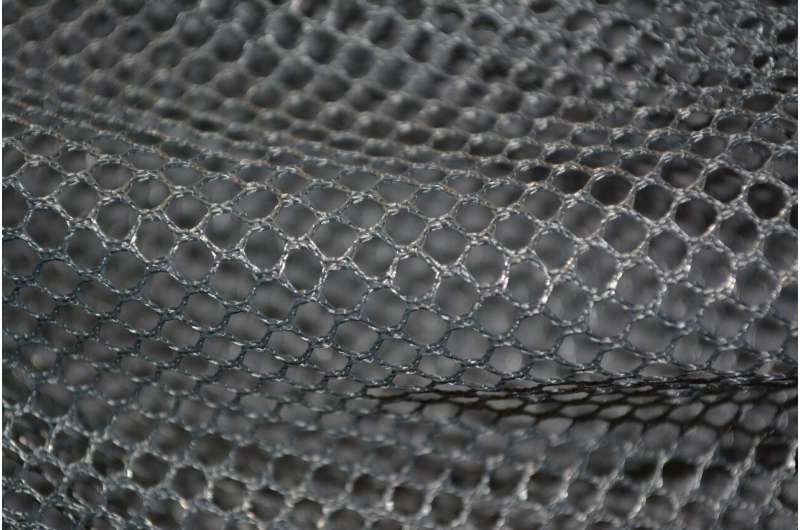
New processes for automated fabrication of fiber and silicone composite structures for soft robotics

Researchers from the Singapore University of Technology and Design (SUTD) have developed novel techniques, known as Automated Fiber Embedding (AFE), to produce complex fiber and silicone composite structures for soft robotics applications. Their work was published in IEEE Robotics and Automation Letters.
Many soft robot components, including sensors and actuators, utilize embedded continuous fibers within elastomeric substrates to achieve various functionalities. However, manual embedding of continuous fibers in soft substrates is challenging due to the complexities involved in handling precise layering, and retaining of the fibers in the patterned positions which are prone to inconsistencies.
In contrast, the AFE approaches developed by the research team led by Assistant Professor Pablo Valdivia y Alvarado, enabled high precision fabrication of complex layered composites without manual user intervention, thus significantly augmenting the range of fabrication possibilities while saving time and labor.
The techniques exploited seamless combinations of fiber embedding with elastomeric deposition via Direct Ink Writing in an automated manner and allowed precise control of depth and fiber spacing within composite structures. This process automation has great potential for the fabrication and tailoring of soft robot components which require complex geometries that cannot be easily achieved manually.
In the study, three different approaches for automated layering and embedding of fibers inside silicone elastomers were discussed. To demonstrate the versatility of the techniques, several soft robotic applications ranging from inflatable actuators to inductive charging coils were also presented. Embedded fiber patterns enabled by the AFE fabrication processes were used to control color change, tailor structural and morphological properties, activate thermal inputs, and enable electrical properties in soft robotic structures. Additionally, combinations of the AFE methods were demonstrated for the autonomous fabrication of several soft mechatronic components.
“Our work demonstrates the development of a family of fabrication processes that can be used to tailor complex fiber layouts within soft composites. This will pave the way for various novel applications in soft robotics including soft sensors and soft communication devices,” said principal investigator, Assistant Professor Pablo Valdivia y Alvarado from SUTD.
T. Stalin et al, Automated Fiber Embedding for Soft Mechatronic Components, IEEE Robotics and Automation Letters (2021). DOI: 10.1109/LRA.2021.3067244
Citation:
New processes for automated fabrication of fiber and silicone composite structures for soft robotics (2021, June 9)
retrieved 9 June 2021
from https://techxplore.com/news/2021-06-automated-fabrication-fiber-silicone-composite.html
This document is subject to copyright. Apart from any fair dealing for the purpose of private study or research, no
part may be reproduced without the written permission. The content is provided for information purposes only.
Stay connected with us on social media platform for instant update click here to join our Twitter, & Facebook
We are now on Telegram. Click here to join our channel (@TechiUpdate) and stay updated with the latest Technology headlines.
For all the latest Technology News Click Here
For the latest news and updates, follow us on Google News.

